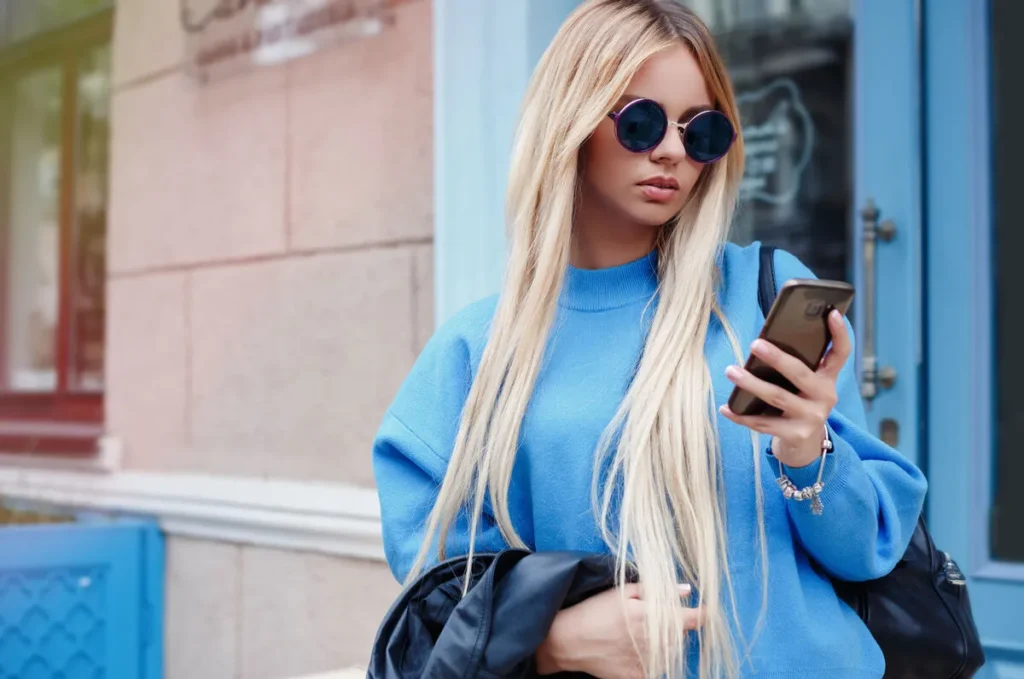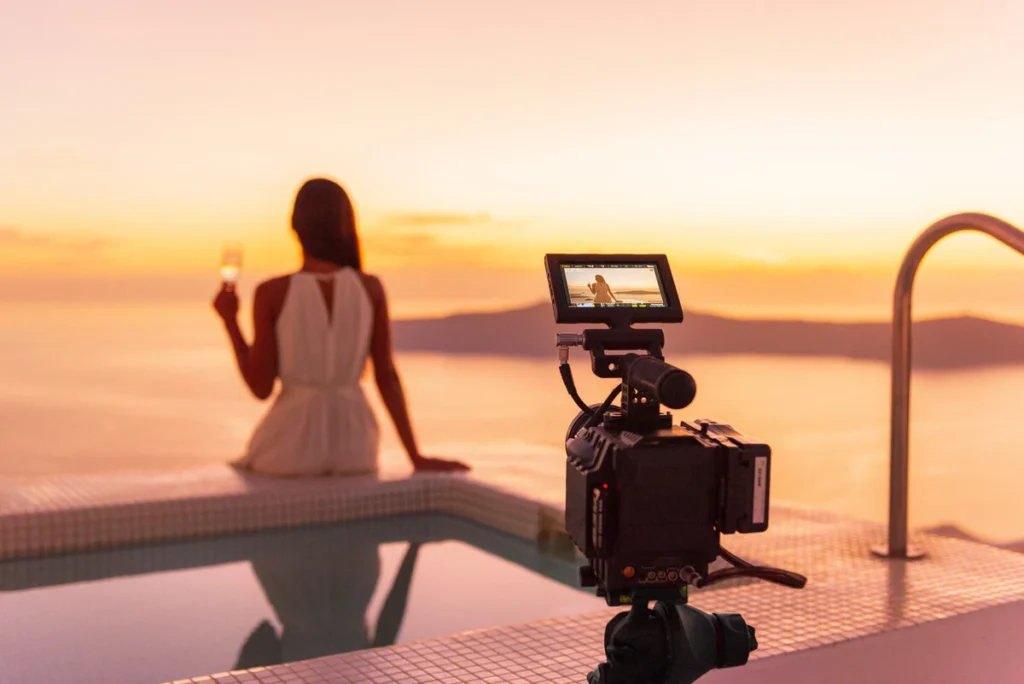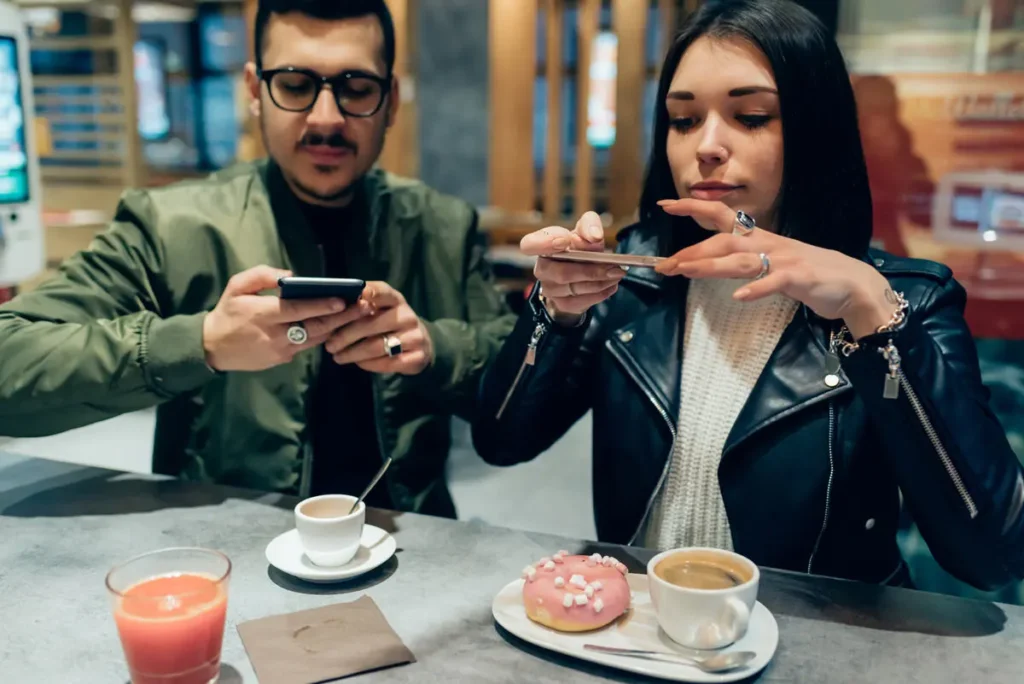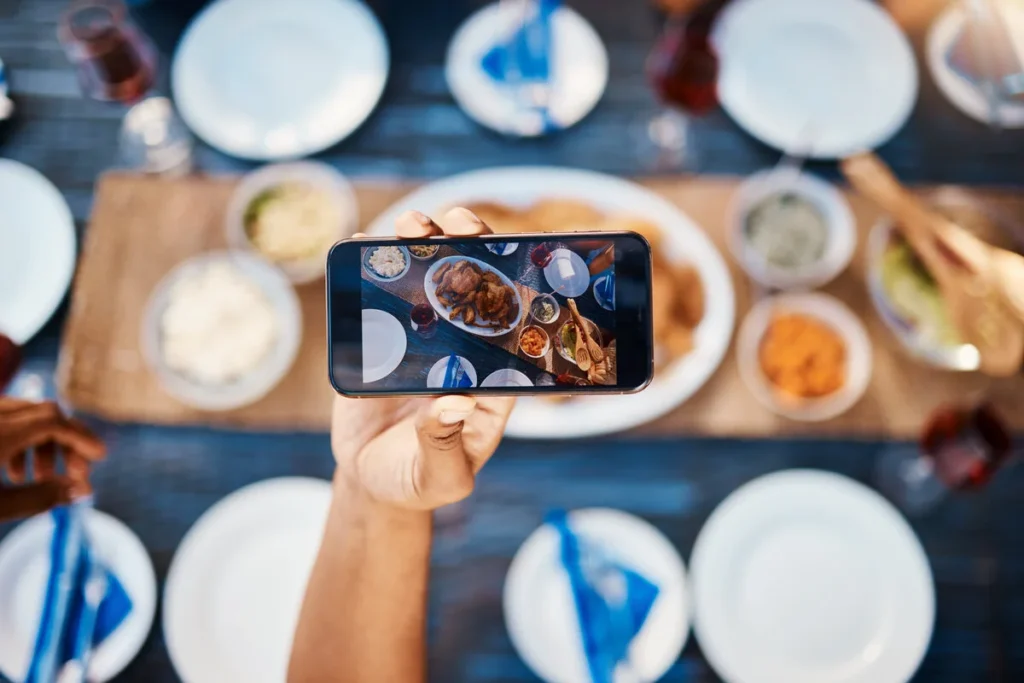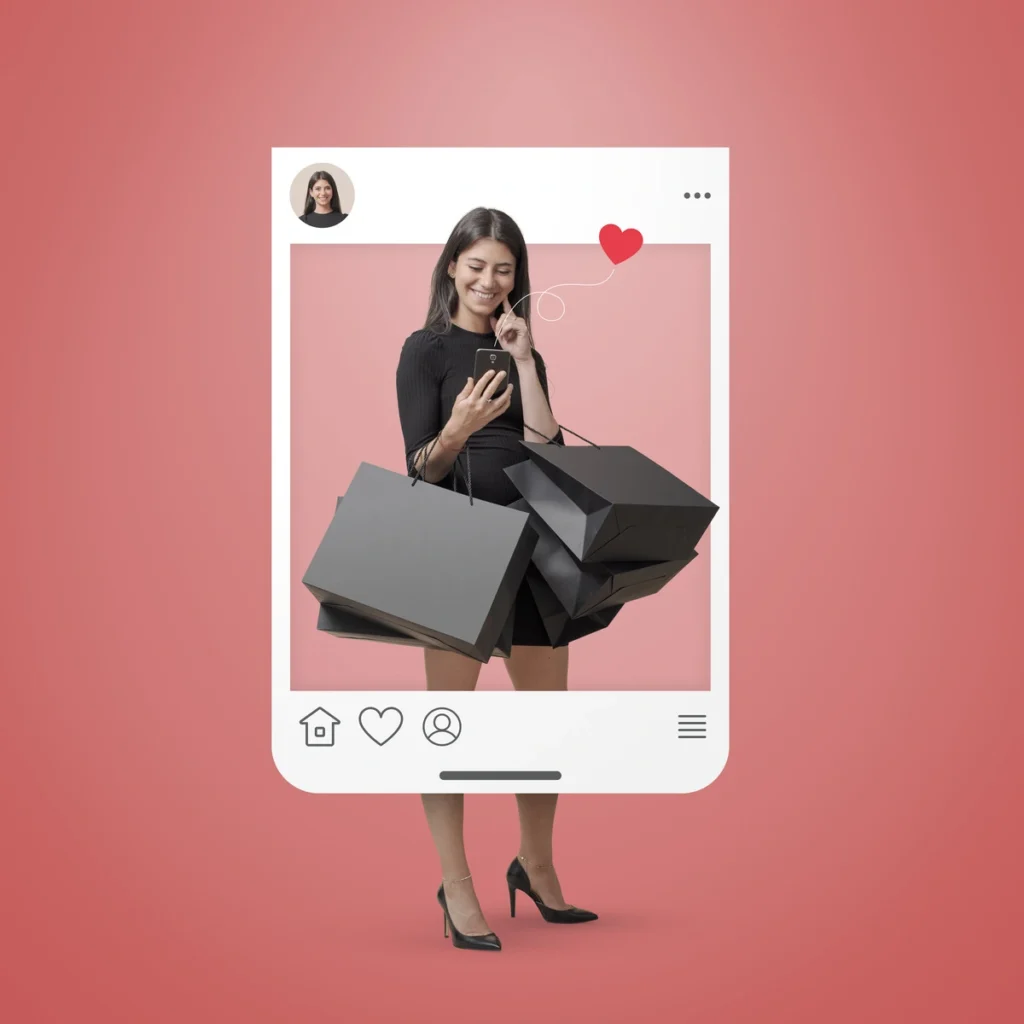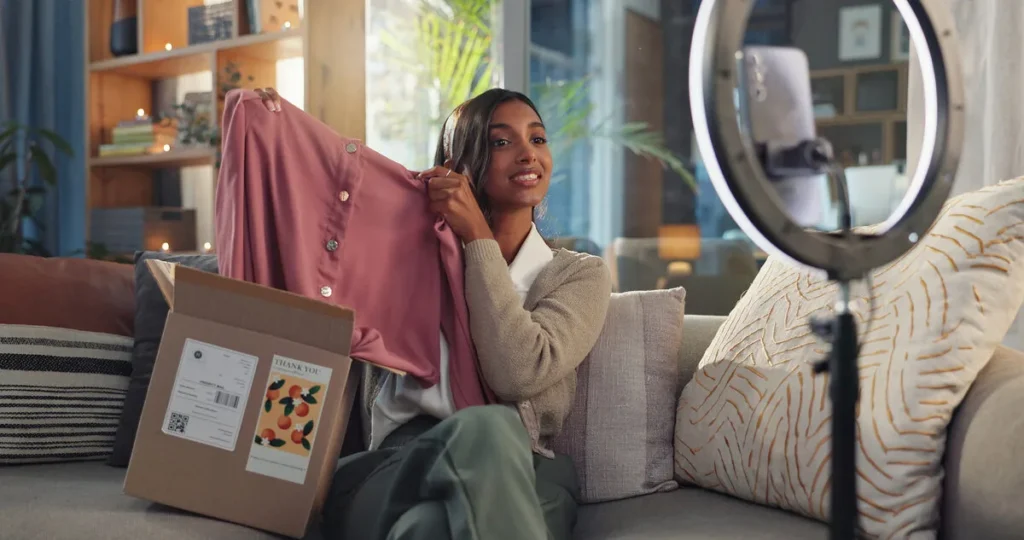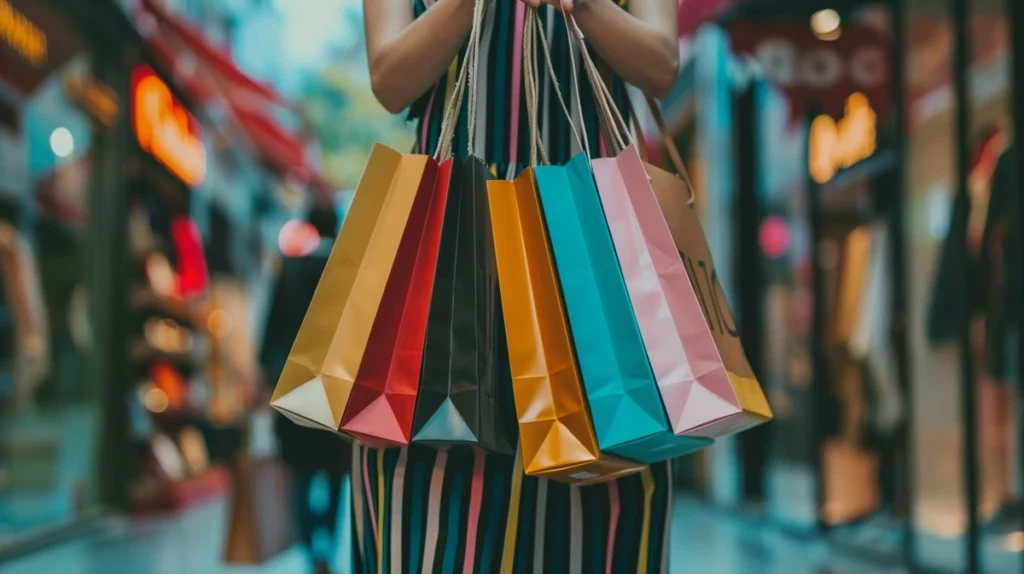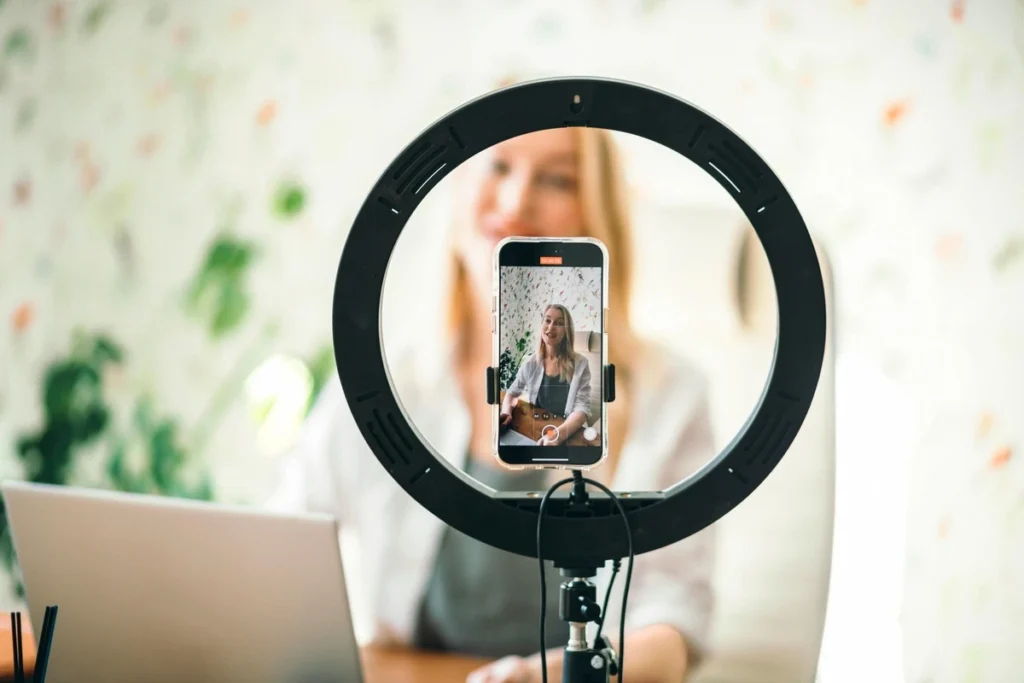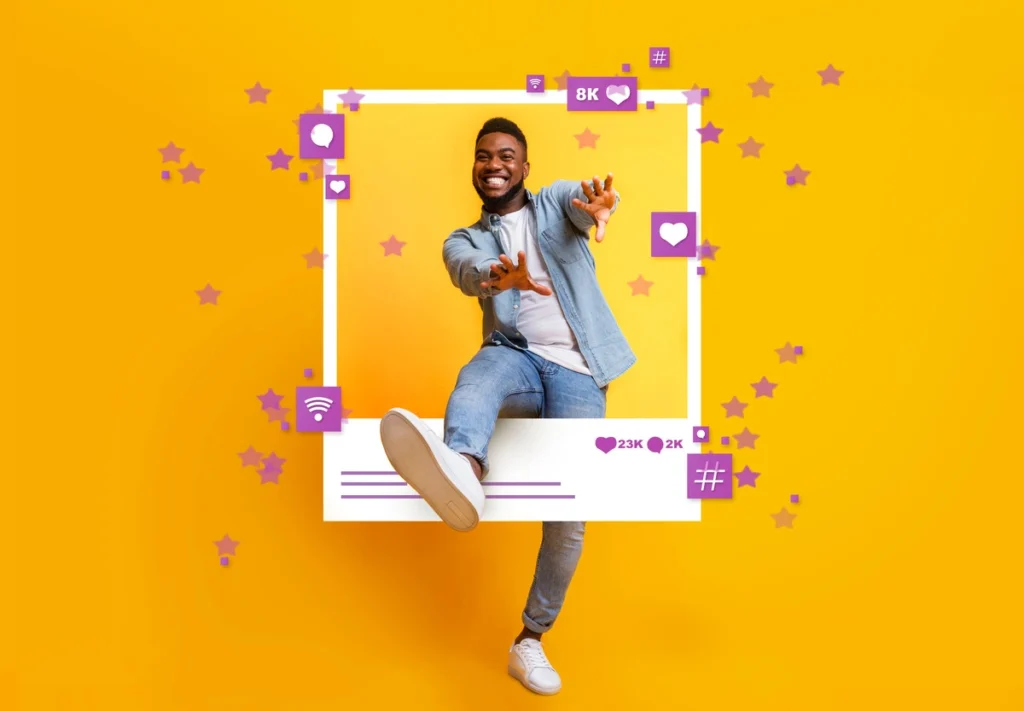The Lion's Den
Fashion Influencer Marketing
25 Influencer Marketing
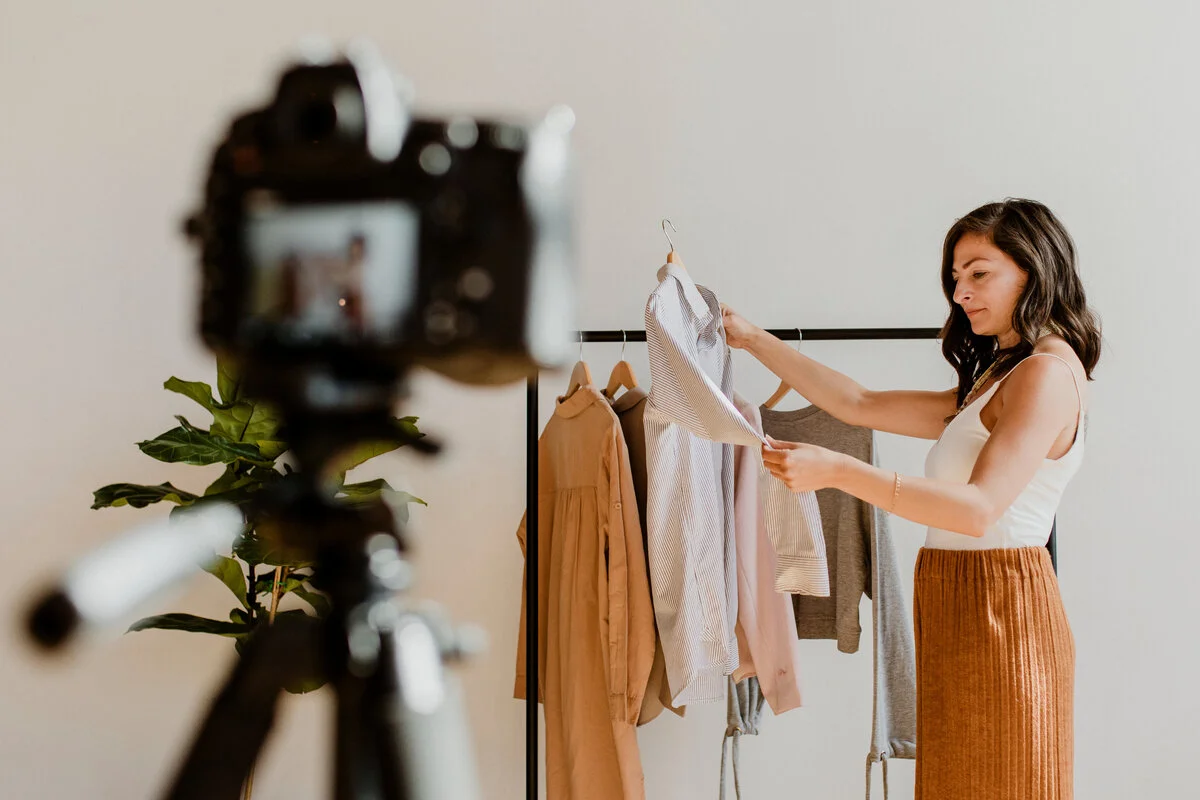
What Is the Role of Influencer Marketing in Fashion?
In the dynamic and fast-paced fashion world, influencer marketing has carved out a vital role, transforming traditional marketing approaches and elevating how brands connect with consumers. At its core, fashion influencer marketing strategy leverages social media influencers who command significant authority and a dedicated following, allowing clothing brands to reach and engage a vast audience more authentically and organically. Recent influencer marketing statistics underscore this impact, showing that campaigns featuring influencers often yield higher engagement rates and stronger consumer trust compared to traditional advertising methods.
Definition and Significance of Influencer Marketing in Fashion
The influencer marketing industry in fashion refers to the strategic collaboration between fashion brands and individuals with a strong online presence who can influence potential customers. This symbiotic relationship is pivotal as influencers offer brands an opportunity for direct consumer engagement, lending an authentic voice that resonates well with the audience—a sharp deviation from traditional brand messaging.
Historical Perspective of Fashion Marketing
Historically, fashion marketing was dominated by glossy magazine ads and celebrity endorsements, requiring substantial investments. The entry of influencers, however, democratized the landscape. As fashion influencers share nuanced, personal experiences with brands, they bring a fresh dimension to marketing that is relatable to everyday consumers, thus enhancing the reach and perception of fashion brands.
Influencer Marketing as a Tool for Brand Awareness
The strategic use of influencer marketing campaigns is now a cornerstone for building brand awareness. They not only showcase the products but also embody the lifestyle and needs that brands aim to sell, effectively bridging the gap between brand aspirations and consumer realities. Influencers curate and style clothing in ways that inspire their followers, driving brand affinity and purchase intent.
The Impact of Influencers on Consumer Purchasing Decisions
Influencers profoundly impact consumer purchasing decisions. With the power of social proof, influencers can sway their audiences by showcasing trends, styles, and product usage, thereby playing a crucial role in shaping fashion choices. This power extends beyond mere trends; influencers also guide their followers through purchase decisions by elevating customer trust and loyalty.
Do Fashion Influencers Get Paid?
Fashion influencers play a vital role in shaping style and consumer behavior across social media platforms within the fashion sector. But the burning question that often emerges in this dynamic landscape is: Do fashion influencers get paid? The answer is a resounding yes. Not only do they get paid, but their earnings can be quite substantial, often forming a significant revenue stream. Many fashion influencers know how to get paid to create content, showcasing their creativity while promoting brands and products to their engaged audiences.
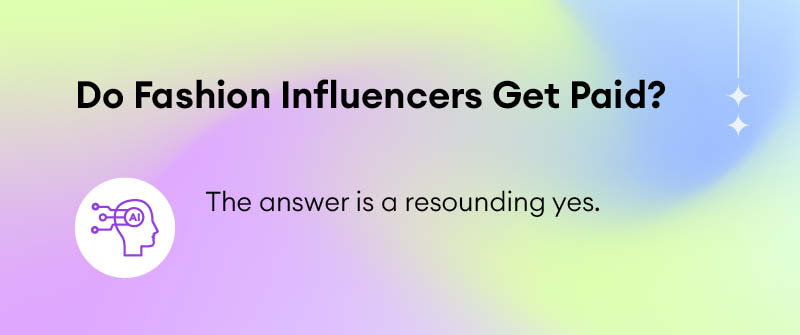
Overview of Payment Structures in Influencer Marketing
At the core of influencer compensation is the payment structure, which can vary significantly depending on the influencer’s reach and specialty. Common payment models include fixed fees per post, performance-based rewards, affiliate links, and product exchanges. Influencers might receive a flat rate for creating and sharing content, or they may earn a commission based on the sales their posts generate.
Factors Affecting Influencer Fees
The fees commanded by influencers are influenced by multiple factors: follower count, engagement rates, niche specialization, and the perceived authenticity of the influencer’s voice. Larger followers generally equate to higher fees; however, micro and nano influencers who boast highly engaged communities can sometimes charge premium rates. Brands are especially keen on investing where they see high returns.
Role of Agencies and Platforms in Connecting Influencers with Brands
Marketing agencies and platforms like Lionize have revolutionized how brands and influencers collaborate. These agencies bridge the gap by managing negotiations, contracts, and campaign logistics, ensuring that everything runs smoothly for both parties. They are instrumental in strategizing and executing campaigns that maximize impact and ROI.
Case Studies of Popular Fashion Influencers
Several fashion influencers exemplify success in monetizing their platforms. A case in point is Chiara Ferragni, who parlayed her extensive social media following into lucrative brand partnerships and even launched her fashion line. Another emerging name, Aimee Song, commands substantial fees for her unique content, leveraging her influence to partner with global fashion houses.
In conclusion, fashion influencers do more than just promote styles; they are integral to the marketing strategies of brands worldwide, offering tangible value that is rightfully compensated through various sophisticated channels. For marketing professionals, understanding these payment dynamics offers a blueprint for designing impactful campaigns that align with today’s consumer expectations.
How Do Influencers Promote Fast Fashion?
Overview of Fast Fashion and Its Appeal
Fashion labels have taken the fashion industry by storm, offering affordable and stylish clothing that mimics runway trends at a fraction of the cost. The appeal lies in its accessibility, constant new arrivals, and the ability to cater quickly to consumer preferences. This model demands rapid production times, which enables brands to continuously provide fresh looks that cater to fashion-conscious individuals. Influencers amplify this appeal by showcasing these trendy and cost-effective outfits to their followers who seek style without breaking the bank. Many influencers also collaborate with these brands through creator gigs, further boosting visibility while adding a personal touch to marketing efforts.
Strategies Used by Influencers to Promote Fast Fashion Brands
Influencers employ various strategies to effectively promote fast fashion brands by first identifying and understanding their target audience. Key among these is the creation of visually engaging content, such as try-on hauls, lookbooks, and outfit-of-the-day posts, which demonstrate the versatility and trendiness of the products. By incorporating strong storytelling and personal style, influencers can highlight the uniqueness of each piece and how it fits into everyday life. Additionally, influencers often utilize their platform to share discount codes, offer exclusive insights, and hold giveaways to engage their audience further and spur consumer interest and activity.
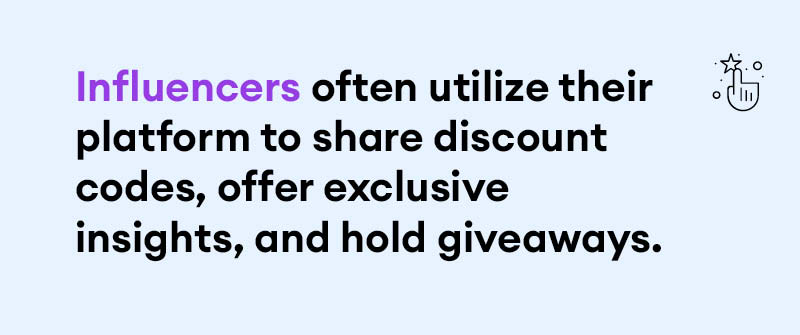
Ethical Considerations and Sustainability Concerns
As luxury brands and fast fashion continue to be promoted, ethical considerations and sustainability concerns are increasingly coming to the forefront of discussions. Critics claim that fast fashion contributes to overconsumption, waste, and environmental degradation. Influencers promoting these brands may face backlash if they do not address these issues. Therefore, it is crucial for influencers to adopt a balanced approach that includes awareness and advocacy for sustainable practices. They can influence positive changes by collaborating with brands that prioritize ethical production and by educating their audience about responsible consumption.
Predictions for the Future of Influencer Marketing in Fast Fashion
Looking ahead to influencer marketing in 2024 and beyond, the role of influencers in promoting fast fashion is expected to evolve. As consumers become more conscious of their environmental impact, there will be a shift toward transparency and sustainability within fast fashion collaborations. Influencers may increasingly partner with eco-conscious brands or utilize platforms that prioritize sustainability to appeal to a mindful audience. Moreover, the rise of micro and nano influencers, who often have higher engagement rates, could play a significant role in creating authentic brand narratives that resonate deeply with niche audiences.
Case Study: Gucci Influencer Marketing
Gucci’s Historical Approach to Influencer Marketing
Gucci, a stalwart in the luxury fashion industry, has always positioned itself at the forefront of marketing innovation. Their approach towards influencer marketing has been no different. Embracing influencers early on, Gucci has successfully carved out a niche that combines their brand’s opulence with a modern, relatable edge. By identifying trendsetters whose aesthetics align with the Gucci brand, they have ensured that their influence extends well beyond traditional advertising.
Success Stories and Campaigns by Gucci
The role of fashion influencer marketing strategy in Gucci’s success cannot be overstated. Take, for example, their collaboration with fashion icon and influencer Alessandro Michele, whose unique vision helped redefine Gucci’s image for a younger audience. The campaign vastly increased engagement and brought unprecedented visibility to the brand, resulting in a significant upsurge in sales and social engagement.
Analysis of Gucci’s Brand Collaborations and Their Outcomes
By strategically utilizing social media influencers’ impact on fashion, Gucci has run multiple campaigns that resonate with diverse audiences. From pairing with star influencers like Harry Styles to partnering with micro-influencers with niche followers, these collaborations have resulted in both tangible and intangible benefits—improving brand visibility and boosting bottom-line sales figures.
Lessons Learned from Gucci’s Marketing Strategies
The lessons from Gucci’s influencer campaigns are clear: authenticity and alignment are key. Gucci’s adeptness at choosing influencers who genuinely love and embody their brand ethos has been instrumental. This strategy reduces skepticism among consumers and fosters a genuine connection. Furthermore, understanding the potential of various social media platforms and adapting content accordingly has proven effective in maintaining relevance.
Influencer Marketing Trends for 2024
Emerging Trends in Fashion Influencer Marketing
As the digital landscape evolves, so does the dynamic world of fashion influencer marketing, with social media platforms becoming a primary source of fashion inspiration. Looking forward to 2024, several key trends are expected to gain significant traction. One such trend is the integration of artificial intelligence into influencer marketing strategies. AI not only streamlines the process of finding the right influencers but also aids in personalizing content, thus increasing engagement rates. In addition, brands are focusing more on building long-term partnerships rather than sporadic campaigns, emphasizing authenticity over mere reach. Influencer brand partnerships are at the forefront of this shift.
Technological Advancements Influencing Marketing Strategies
In the realm of influencer marketing, technology plays a pivotal role. With the rise of augmented reality (AR) and virtual reality (VR), fashion brands are exploring innovative ways to offer immersive experiences. Imagine a virtual fitting room where potential buyers can ‘try on’ clothes with the help of their favorite influencers. This not only enhances consumer interaction but also boosts sales, providing an unparalleled shopping experience from the comfort of a user’s home.
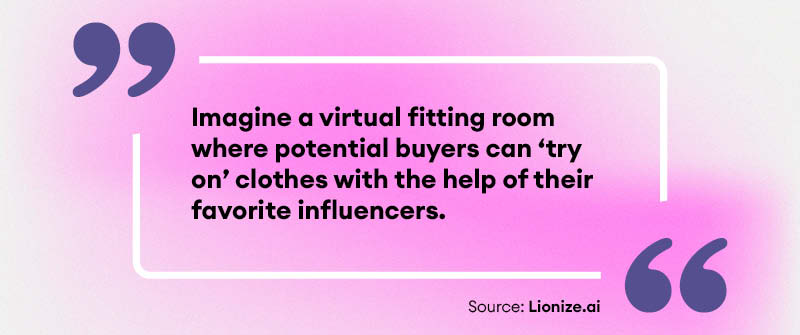
The Rise of Micro and Nano Influencers
One of the most notable shifts observed in recent years is the growing importance of micro and nano influencers. Despite having smaller follower counts, these influencers often boast highly engaged audiences, offering authenticity and relatability that larger influencers might lack. As brands seek to connect with niche markets, partnering with micro and nano influencers is becoming an essential part of the fashion influencer collaboration trends. This trend is expected to dominate in 2024 as brands continue to leverage these strong community connections.
Predicted Shifts in Consumer Behavior and Brand Expectations
With the ever-evolving social media landscape, consumer behavior too witnesses a shift. In 2024, consumers are likely to demand more transparency and responsibility from brands. This means ethical practices, sustainability, and inclusivity will become significant factors in influence. Brands that can align their values with those of their audience and incorporate these into their marketing strategies will likely stand out. Consumers will increasingly lean towards brands that not only sell products but also promote a story or a cause they believe in.
Revolutionize your influencer strategies with our cutting-edge AI solutions that make finding, managing, and collaborating with fashion influencers seamless and effective. Embrace the future of marketing today and watch your brand’s reach multiply as you engage with authentic voices that speak directly to your audience. Start your journey with us for free and discover the perfect partners to elevate your fashion brand.





